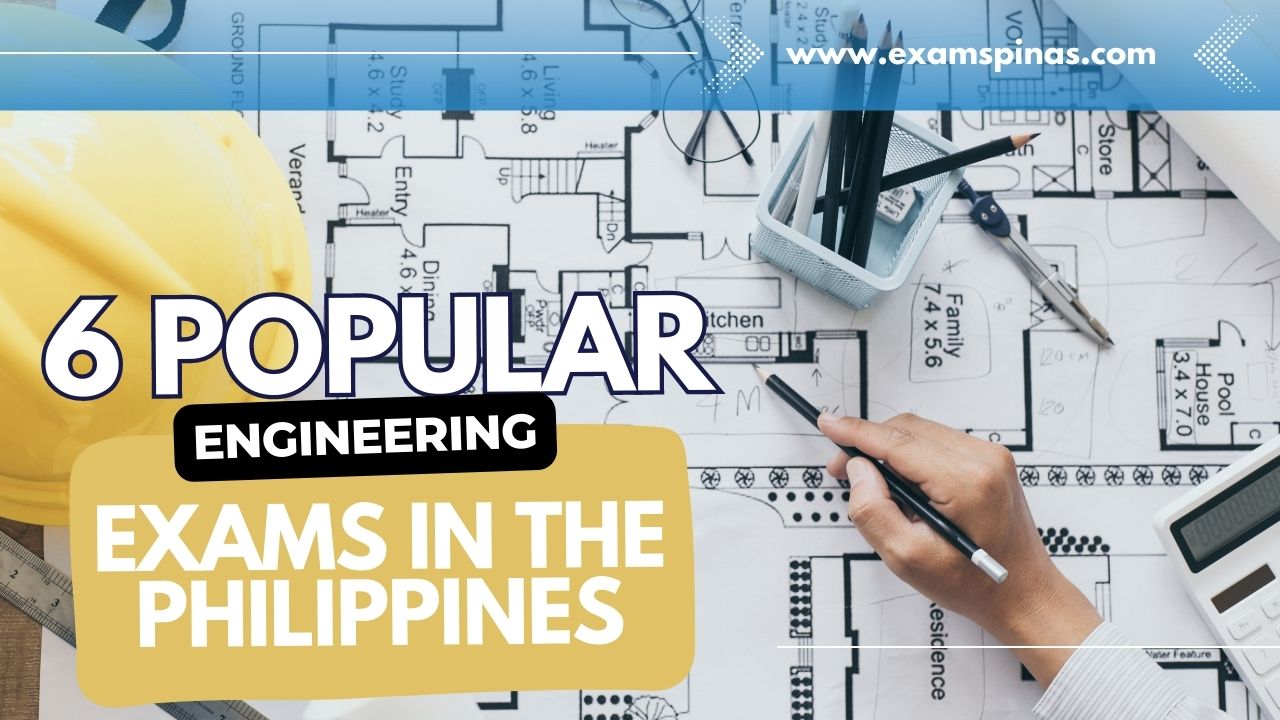Engineering is a prestigious and sought-after profession in the Philippines, attracting thousands of ambitious students each year. To embark on a successful engineering career, aspiring engineers must first pass rigorous national licensure exams. These exams not only assess theoretical knowledge but also evaluate practical skills, ensuring that only competent and qualified professionals enter the field. In this article, we will explore some of the popular engineering exams in the Philippines, shedding light on their significance and the opportunities they open for engineering graduates.
- Philippine Regulation Commission (PRC) Board Exams:
The Philippine Regulation Commission (PRC) is the government agency responsible for regulating and licensing various professions, including engineering. PRC conducts board exams for different engineering disciplines twice a year, typically in March and September. These exams cover the core engineering subjects related to the specific discipline and aim to assess candidates’ competence and understanding of engineering principles.
The most popular engineering board exams under the PRC include:
a. Civil Engineering Licensure Examination
b. Electrical Engineering Licensure Examination
c. Mechanical Engineering Licensure Examination
d. Electronics Engineering Licensure Examination
e. Chemical Engineering Licensure Examination
f. Geodetic Engineering Licensure Examination
- Importance of Passing Engineering Board Exams:
Passing the engineering board exams is a crucial step in an engineer’s career path. It is a testament to their academic preparation, professional competency, and commitment to ethical standards. Licensed engineers gain legal authority to practice their chosen engineering discipline, affording them numerous opportunities in various industries, including construction, manufacturing, telecommunications, and environmental engineering.
Moreover, having a professional license elevates an engineer’s credibility and employability. Many employers prefer licensed engineers as they provide an assurance of quality and adherence to industry standards.
- Preparation and Challenges:
Preparing for engineering board exams is an intensive process that demands dedication and perseverance. Many engineering graduates opt to enroll in review centers that offer specialized courses and practice exams to enhance their chances of success. Review centers provide valuable insights, exam-taking strategies, and a structured approach to cover the vast syllabus effectively.
However, the road to becoming a licensed engineer is not without challenges. The exams are comprehensive and require a deep understanding of the core engineering concepts. Time management, exam anxiety, and the pressure to succeed can also be significant obstacles for candidates. But with discipline, hard work, and a positive mindset, aspiring engineers can overcome these challenges and achieve their goals.
- Career Opportunities for Licensed Engineers:
Becoming a licensed engineer opens up a plethora of career opportunities. Licensed civil engineers can work in construction firms, government agencies, and consulting companies. Electrical and electronics engineers find opportunities in the power and telecommunications sectors, while mechanical engineers are in demand across industries dealing with machinery and manufacturing.
Moreover, licensed engineers can pursue higher positions, such as project managers, research and development specialists, and even start their own engineering firms.
Engineering board exams in the Philippines are an essential gateway to a successful and rewarding career in the field of engineering. These exams rigorously evaluate an engineer’s theoretical knowledge and practical skills, ensuring that only competent professionals enter the industry. Passing these exams not only grants legal authority to practice engineering but also enhances an engineer’s credibility and employability.
For aspiring engineers, it is crucial to approach exam preparation with dedication and commitment. By investing in quality review programs, managing time effectively, and maintaining a positive attitude, candidates can conquer the challenges and lay the foundation for a prosperous engineering career in the Philippines.

